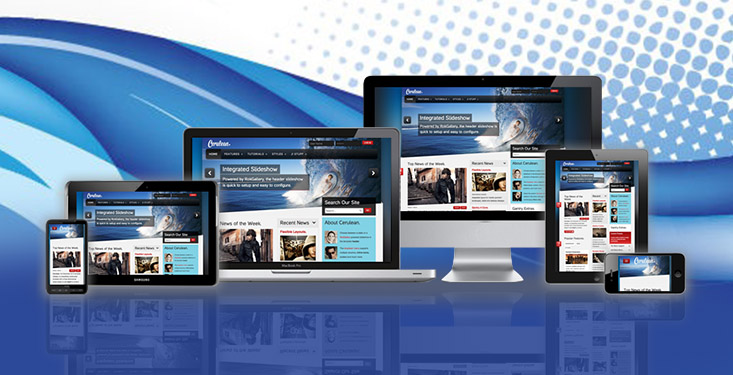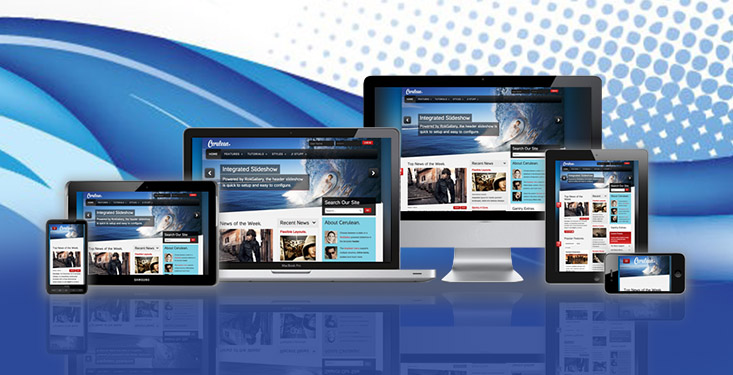In the fast-evolving digital landscape of Dubai, responsive web design has emerged as a crucial factor for online success. As businesses strive to enhance their online presence, the impact of responsive web design on conversion rates and SEO cannot be overstated. This article explores how responsive web design influences these key metrics, with a focus on the benefits it offers and the best practices for achieving optimal results.
What is Responsive Web Design?
Responsive web design (RWD) is an approach that ensures a website’s layout adjusts seamlessly across various devices and screen sizes. Instead of creating separate versions of a site for different devices, responsive design uses fluid grids, flexible images, and media queries to provide an optimal viewing experience on desktops, tablets, and smartphones. This adaptability is increasingly vital as mobile usage continues to rise globally.
Impact on Conversion Rates
Conversion rate optimization (CRO) is a strategic approach aimed at improving the percentage of visitors who complete a desired action on a website. In Dubai, a city known for its competitive digital market, optimizing conversion rates is essential for businesses looking to gain a competitive edge.
- Enhanced User Experience
One of the most significant ways responsive web design impacts conversion rates is through improved user experience. According to a study by Google, 61% of users are unlikely to return to a mobile site they had trouble accessing, and 40% visit a competitor’s site instead. A responsive website ensures that users have a seamless experience regardless of the device they use. This ease of use encourages visitors to stay longer on the site and engage more, which directly boosts conversion rates. - Faster Load Times
Responsive web design often leads to faster load times, as it eliminates the need for multiple versions of a website. Google’s research indicates that a one-second delay in mobile page load time can reduce conversions by up to 20%. Faster load times enhance the user experience and reduce bounce rates, leading to higher conversion rates. - Consistent Branding
A responsive design ensures that branding is consistent across all devices. Consistency in design and messaging helps build trust and credibility with users. When users encounter a unified brand experience, they are more likely to convert, whether it’s making a purchase, signing up for a newsletter, or completing a contact form. - Improved Accessibility
Responsive web design makes a website more accessible to users with different needs. For instance, text and images automatically adjust to fit the screen size, making content easier to read and interact with. According to the Web Accessibility Initiative, improved accessibility can lead to increased user engagement and higher conversion rates.
Impact on SEO
Search engine optimization (SEO) is critical for improving a website’s visibility on search engines. In Dubai, where competition is fierce, having a well-optimized site can significantly impact a business’s online success.
- Google’s Mobile-First Indexing
Google’s shift to mobile-first indexing means that the mobile version of a website is considered the primary version for ranking purposes. A responsive web design is essential for SEO because it ensures that all content is accessible and indexed by Google. Sites that are not mobile-friendly may suffer from lower rankings, reducing their visibility in search results. - Reduced Bounce Rates
Responsive design can help reduce bounce rates, a factor that search engines consider when ranking websites. According to a report by Statista, 58% of mobile users will leave a site that takes longer than three seconds to load. By providing a better user experience through responsive design, businesses can keep users engaged and reduce bounce rates, which positively impacts SEO. - Single URL Structure
A responsive website uses a single URL for all devices, making it easier for search engines to index and rank the site. This unified URL structure eliminates the need for redirects and duplicate content issues, which can harm SEO. According to Moz, a single URL for both desktop and mobile versions of a site simplifies the link-building process and improves search engine rankings. - Improved Local SEO
Many users search for businesses and services using mobile devices, often while on the go. A responsive web design enhances local SEO by ensuring that users have a positive experience when searching for businesses in Dubai. A mobile-friendly site is more likely to appear in local search results, driving more traffic and potential customers to the business.
Best Practices for Implementing Responsive Web Design
To fully leverage the benefits of responsive web design, businesses in Dubai should follow these best practices:
- Prioritize Mobile Usability
Ensure that the mobile version of the site is easy to navigate and interact with. Focus on touch-friendly elements, readable text, and accessible buttons. Testing on various devices and screen sizes can help identify and address usability issues. - Optimize Load Times
Implement techniques to optimize site speed, such as compressing images, using caching, and minimizing code. Tools like Google PageSpeed Insights can provide valuable insights into areas for improvement. - Maintain Consistent Design
Keep the design and branding consistent across all devices. This includes using the same colors, fonts, and layout elements to provide a cohesive brand experience. - Focus on Content Quality
Ensure that content is relevant, engaging, and optimized for both desktop and mobile users. High-quality content that meets users’ needs can improve user engagement and contribute to higher conversion rates and better SEO.
Conclusion
In Dubai’s competitive digital market, responsive web design is more than just a design trend; it’s a crucial element for improving conversion rates and SEO. By providing a seamless user experience, enhancing site accessibility, and aligning with Google’s mobile-first indexing, businesses can achieve significant advantages in both user engagement and search engine visibility. As the digital landscape continues to evolve, investing in responsive web design remains a smart strategy for businesses aiming to stay ahead in the dynamic online world.For businesses seeking expert assistance in responsive web design, partnering with a leading responsive web design company in Dubai can provide the expertise and support needed to optimize their online presence. Additionally, incorporating conversion rate optimization strategies, such as those practiced in Australia, can further enhance website performance and achieve desired business outcomes.










